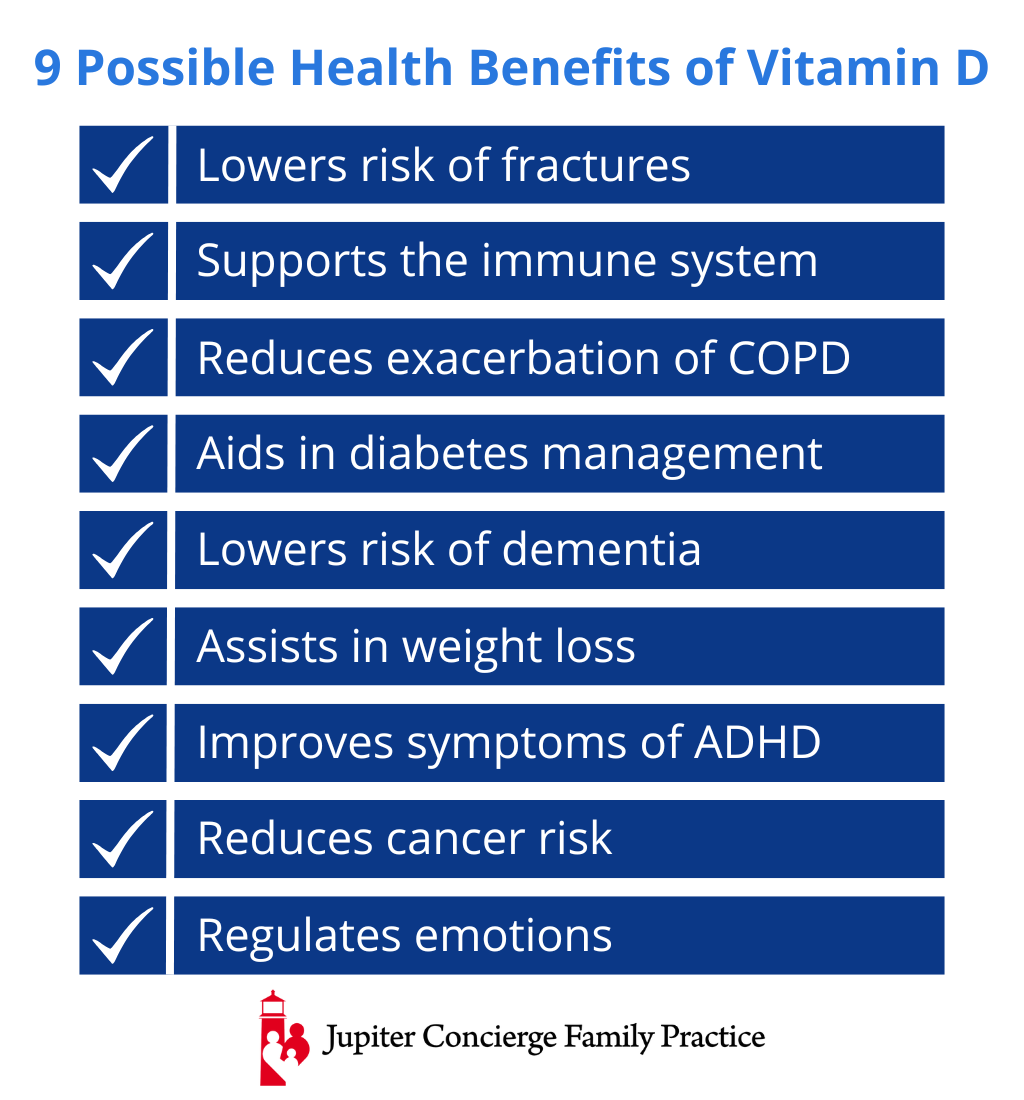
Vitamin D is one of the most versatile vitamins on the planet. From improving bone health to reducing cancer risk to supporting the immune system, there’s not much in the body vitamin D doesn’t affect.
Today, we’re going to take a look at how vitamin D supplementation could benefit you.
Sources of Vitamin D
Vitamin D occurs naturally in our bodies. It’s produced through a combination of spending time in the sun and consuming dietary cholesterol, which is an essential nutrient (though it’s often confused with the cholesterol that causes heart disease).
We obtain vitamin D from external sources, as well, including foods like fish, meat, eggs, and dairy or vitamin D-fortified foods. We can also get vitamin D through supplements.
Generally speaking, most people don’t have enough vitamin D. We don’t get enough from our diets, and we don’t spend enough time in the sun because of skin cancer risk. As a result, vitamin D insufficiency is very common. Here’s why that matters.
9 Health Benefits of Vitamin D
Although the following benefits of vitamin D are correlative (meaning studies have shown correlation, but not definitive proof of causation), we tend to recommend vitamin D supplementation because the risk of adverse effects is so small. It takes an extremely high dose of vitamin D, often over a long period of time, to result in toxicity.
With so few potential downsides and so many potential benefits, vitamin D is worth a look because it…
- Lowers risk of fractures. In the presence of calcium, vitamin D has been associated with minimizing the risk of some fractures, such as stress fractures. Because these nutrients help to increase your bone density, your bones become stronger and can better resist breaks.
- Supports the immune system. Shown to have antibacterial, antiviral, and anti-inflammatory effects, vitamin D can make your immune system more effective at attacking foreign organisms, thus protecting you from illness.
- Reduces exacerbation of COPD. For patients with chronic obstructive pulmonary disease (COPD) and low levels of vitamin D, increasing vitamin D can prevent the worsening of this difficult condition.
- Aids in diabetes management. Because vitamin D improves insulin sensitivity (thus reducing insulin resistance), it can help pre-diabetics avoid progressing to full-blown diabetes. It might also help insulin work better in diabetics.
- Lowers risk of dementia. Studies show an association between low vitamin D levels and cognitive impairment, a precursor of dementia.
- Assists in weight loss. Vitamin D and body fat appear to have an inverse relationship: the higher the body fat percentage, the lower the vitamin D. Studies are still unclear about cause and effect, but it’s believed that people with higher levels of fat can benefit from increased vitamin D.
- Improves symptoms of ADHD. Vitamin D has shown positive effects on mitigating impulsivity and hyperactivity associated with attention deficit/hyperactivity disorder (ADHD).
- Reduces risk of cancer. Associated with a 16% reduced risk of colon cancer, vitamin D’s role in preventing colon cancer may not be enormous, but it is statistically significant.
- Regulates emotions. Appropriate vitamin D levels may help alleviate symptoms of depression and negativity, thus improving your quality of life.
Final Thoughts on Vitamin D
With so much to offer, vitamin D can be a powerful aid to a healthy diet. Whether it’s through food or vitamin D supplements, the benefits of this vitamin are far-reaching. Remember to get your vitamin D levels checked annually at your physical and talk with your physician about safe vitamin D supplementation.


